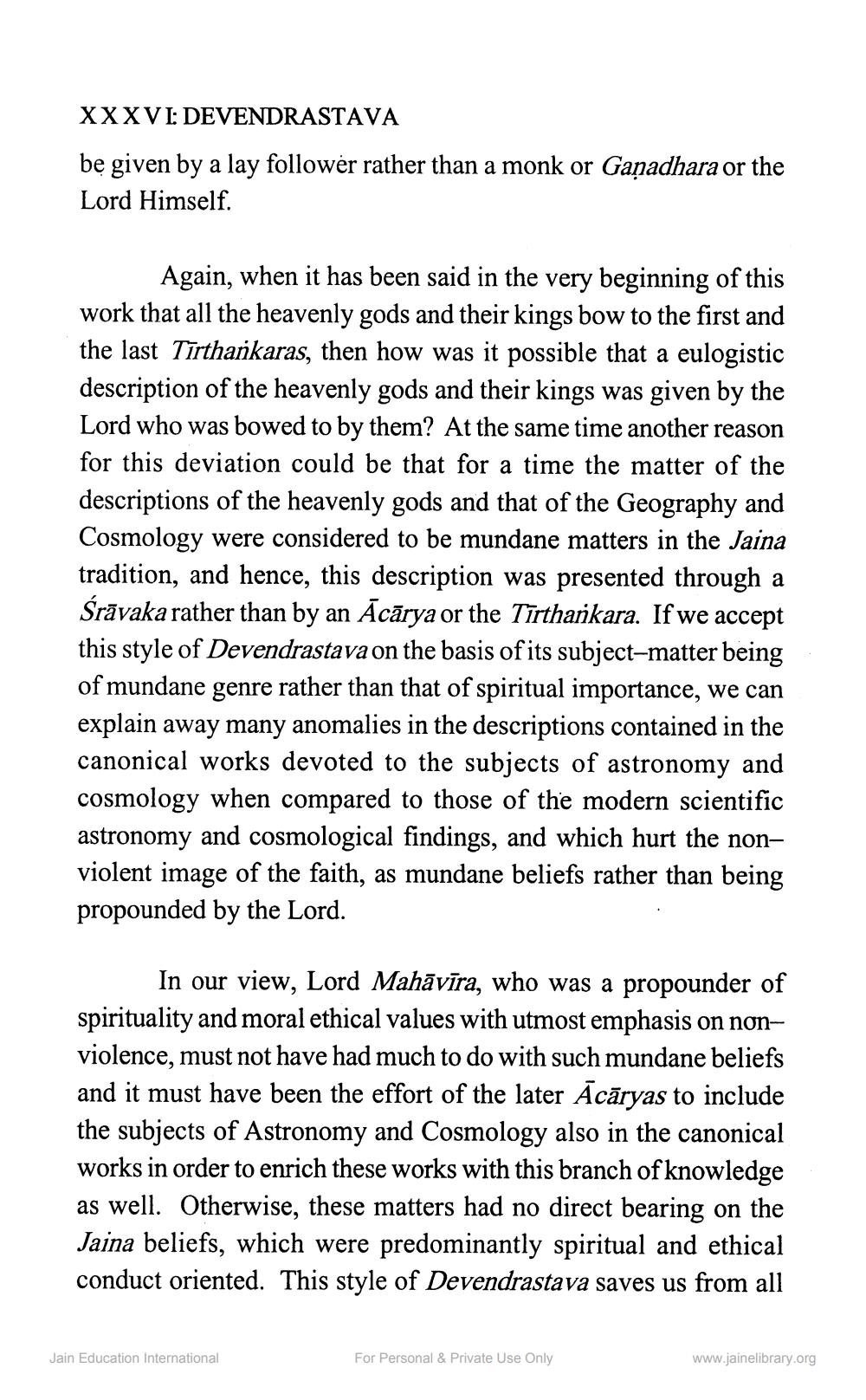________________
XXXVI: DEVENDRASTAVA be given by a lay follower rather than a monk or Ganadhara or the Lord Himself.
Again, when it has been said in the very beginning of this work that all the heavenly gods and their kings bow to the first and the last Tīrthankaras, then how was it possible that a eulogistic description of the heavenly gods and their kings was given by the Lord who was bowed to by them? At the same time another reason for this deviation could be that for a time the matter of the descriptions of the heavenly gods and that of the Geography and Cosmology were considered to be mundane matters in the Jaina tradition, and hence, this description was presented through a Śrāvaka rather than by an Ācārya or the Tīrtharkara. If we accept this style of Devendrastava on the basis of its subject-matter being of mundane genre rather than that of spiritual importance, we can explain away many anomalies in the descriptions contained in the canonical works devoted to the subjects of astronomy and cosmology when compared to those of the modern scientific astronomy and cosmological findings, and which hurt the nonviolent image of the faith, as mundane beliefs rather than being propounded by the Lord.
In our view, Lord Mahāvīra, who was a propounder of spirituality and moral ethical values with utmost emphasis on nonviolence, must not have had much to do with such mundane beliefs and it must have been the effort of the later Ācāryas to include the subjects of Astronomy and Cosmology also in the canonical works in order to enrich these works with this branch of knowledge as well. Otherwise, these matters had no direct bearing on the Jaina beliefs, which were predominantly spiritual and ethical conduct oriented. This style of Devendrastava saves us from all
Jain Education International
For Personal & Private Use Only
www.jainelibrary.org




